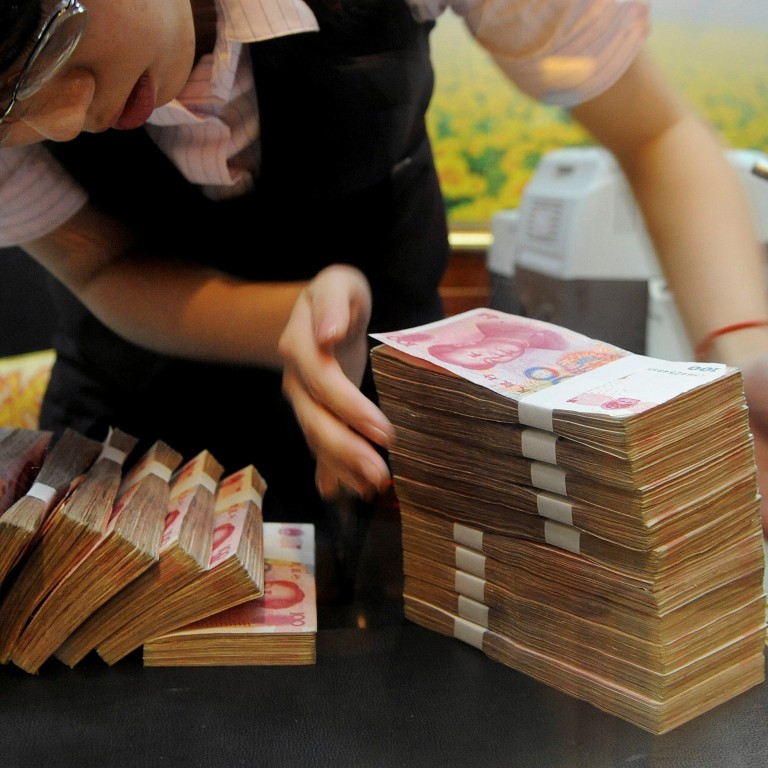
Explainer | Why is China’s national financial work conference important? Key decisions since 1997 and what to expect this year
- National financial work conference set to start on Monday, with the property sector, small banks and local government financing vehicles set to be top of the agenda
- It will be the sixth national financial work conference since 1997, with the high-profile meeting often chaired by the top leaders
China is expected to hold its sixth national financial work conference this week, an important occasion for regulators to assess the current crisis in the property sector and at small banks, as well as the status of local government financing vehicles.
Since the first meeting in 1997, which was a direct response to the Asian financial crisis, the national financial work conference has made key decisions to plot China’s financial direction.
1997: countering the Asian financial crisis
The first meeting was a direct response to the Asian financial crisis in 1997-98, when the capital adequacy ratio of China’s big four state-owned banks was only 3.5 per cent – far below the international standard of 8 per cent.
The Industrial and Commercial Bank of China, China Construction Bank, the Agricultural Bank of China (ABC) and Bank of China were called technically bankrupt by some Western economists due to bad loans.
China’s debt crises see cabinet work report focus on curbing contagion
The meeting decided to set up the Central Financial Work Commission, China Securities Regulatory Commission and China Insurance Regulatory Commission to supervise the financial system.
It also established four asset management companies to take over non-performing assets from banks.
2002: financial regulatory reshuffle
The second meeting in 2002 proposed the idea of “turning banks into modern financial enterprises”.
The China Banking Regulatory Commission was set up to deal with banks’ swelling debt loads, undercapitalisation and non-transparent business practices.
‘Pain could be too much’: China’s regional banks facing US$300 billion loss
At the end of 2003, Central Huijin Investment was also established to lead the restructuring and listing of China’s banks and help mitigate banking industry risks.
The meeting also drafted a series of key policies to support the joint-stock reform and overseas listings of China’s Big Four banks.
2007: sovereign wealth fund established
The third meeting in 2007 highlighted the reform of the financial system in rural areas and foreign exchange reserve management.
The Ministry of Finance also issued 1.55 trillion yuan of special government bonds to help establish the China Investment Corporation to carry out international investment operations.
2012: supporting the real economy
The 2012 work conference stressed that “finance should serve the real economy” and “preventing financial risks is the lifeline of financial work”.
It was also the first time that resolving local government debt risks was mentioned.
Restructure puts China’s US$58 trillion in financial assets firmly in party’s purview
Local governments were instructed to properly handle existing debt and include debt classification into budget management.
Then-premier Wen Jiabao also said that local government debt scale controls and a risk warning mechanism should be built.
2017: de-risking mission
The 2017 meeting set the course for China’s de-risking campaign and financial opening.
At that time, China’s economic growth had slowed and there was tension between financial innovation and supervision.
President Xi Jinping had said preventing systemic financial risks was an eternal theme of financial work, making it necessary to strictly regulate financial market transactions and strengthen internet financial supervision.
China spins up new party finance organ as property market continues to lurch
The Financial Stability and Development Committee was established after the meeting, to serve as China’s supreme decision-making body on national financial affairs.
A push for yuan internationalisation and promotion of financial innovation under the Belt and Road Initiative were also mentioned.
2023: what to expect from this year’s conference?
The conference was pushed back a year from 2022 due to various reasons, including to ensure policies would be set by the new leadership – which was established in March – that will be overseeing their implementation.

